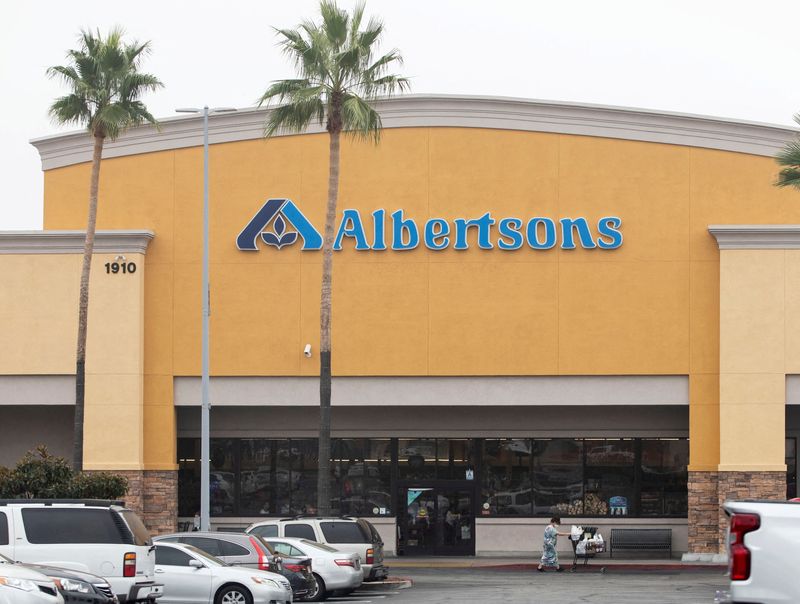By Diane Bartz
WASHINGTON (Reuters) - The California attorney general's office is probing whether Kroger (NYSE:KR)'s $24.6 billion plan to buy rival grocer Albertsons will make it harder for people in poorer parts of cities or rural areas to buy medicines, according to two people familiar with the review.
Food deserts, which are better known, are often working class areas of cities or small towns where people have few options to buy healthy foods like fresh foods or vegetables. Areas can face the same issue with pharmacy access.
Research from the University of Southern California in 2021 found one in three neighborhoods in 30 populous U.S. cities were "pharmacy deserts."
In urban areas, researchers defined a pharmacy desert as a neighborhood where people had to walk or take a bus more than a half mile to a pharmacy. In areas where people tended to drive, a neighborhood that was more than a mile from a pharmacy would be termed a pharmacy desert.
Two people told Reuters that the California attorney general's office, which is reviewing the planned acquisition for potential violations of antitrust law, has also asked if the deal would mean more or bigger pharmacy deserts in the state. The people declined to be identified because they were not authorized to speak on the record about the conversations.
California Attorney General Rob Bonta has previously said he was "deeply concerned" about the proposed merger.
The deal, announced in October, would create a grocery chain with nearly 5,000 stores, although up to 650 may be sold to win approval for the transaction. Walmart (NYSE:WMT) is the biggest U.S. grocer with 34.8% of the market while a combined Kroger/Albertsons would be No. 2 at 22%, according to Food and Water Watch.
A total of 2,254 Kroger-owned stores have pharmacies while some 1,700 Albertsons supermarkets have pharmacies, according to the companies' websites.
A spokesperson for Kroger said that the company was working with antitrust enforcers to ensure that any stores that are sold to satisfy antitrust concerns would remain open and viable, including any stores with pharmacies.
"Post-transaction, Kroger will operate the pharmacies that are part of the Albertsons' stores that it acquires," the spokesperson said.
Staffers for the Federal Trade Commission, which is leading the federal probe, have spoken with experts in food deserts, the farming industry and smaller grocery chains, according to people who were queried by the agency.
Neither of the people who spoke with Reuters about pharmacy deserts knew if enforcers would file a lawsuit aimed at stopping the proposed transaction or when enforcers would decide what action to take on Kroger's plan to buy Albertsons.
If the FTC files a lawsuit to halt the deal, it would be in line with a broader Biden administration effort to prevent big companies from doing deals that lead to higher prices and feed inflation.

One source told the California attorney general's office that low income people were likely to lose access to pharmacy services, which include vaccinations, if the deal goes forward.
The person argued that the deal would most likely lead to some of the less profitable stores being closed, despite the companies' pledge to close no stores.